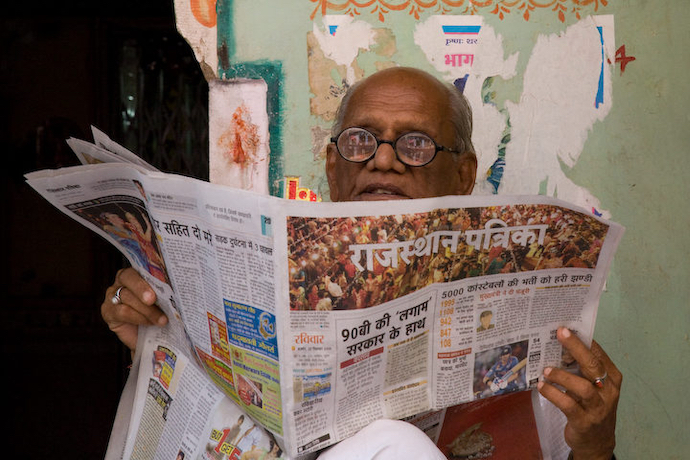The Platform
Latest Articles
by Mohammad Ibrahim Fheili
by Abidemi Alade
by Sheiknor Qassim
by Theo Casablanca
by Vince Hooper
by Samita Sajeevan
by James Carlini
by Sheiknor Qassim
by Samudrala VK
by Mohammad Ibrahim Fheili
by Abidemi Alade
by Sheiknor Qassim
by Theo Casablanca
by Vince Hooper
by Samita Sajeevan
by James Carlini
by Sheiknor Qassim
by Samudrala VK
New Report Raises Serious Concerns about Media Freedom in India
06.16.2024
The 2024 World Press Freedom Index ranks India 159th, highlighting severe challenges to media freedom under increasing government suppression.
The 2024 World Press Freedom Index, unveiled by Reporters Without Borders (RSF), casts a glaring spotlight on the daunting challenges confronting journalists in India. Ranked 159th out of 180 countries, India lags behind Turkey (158th), Pakistan (152nd), and Sri Lanka (150th), reflecting a deteriorating media landscape grappling with severe constraints on press freedom.
The report evaluates the extent of journalism freedom, reporting, and media operations globally, and the latest findings paint a bleak picture for India. Key issues highlight stringent limitations on the Indian press, showcasing a troubling trend of governmental suppression.
Nine journalists and one media worker are currently detained in India, embodying a broader movement to stifle dissenting media voices. Since Prime Minister Narendra Modi and his Bharatiya Janata Party (BJP) assumed power in 2014, India’s media has been described as being in an “unofficial state of emergency.”
Under Modi’s government, several legislative measures have granted the government substantial control over the media, including the ability to censor news and silence critics. Noteworthy among these are the 2023 Telecommunications Act, the draft Broadcasting Services (Regulation) Bill of 2023, and the 2023 Digital Personal Data Protection Act.

Journalists who critique the government are frequently subjected to online harassment, intimidation, threats, physical assaults, criminal charges, and arbitrary arrests. The situation in Kashmir is notably dire, with journalists often facing police and paramilitary harassment, and some enduring prolonged “provisional” detentions.
The report underscores a global trend of political authorities posing significant threats to press freedom, noting a 7.6-point decline in press freedoms worldwide, with the political indicator experiencing the most pronounced drop. This trend is alarming, especially with over half the global population poised to vote in 2024, heightening concerns about increased political interference in media.
The report gauges press freedom through five indicators: political context, legal framework, economic context, sociocultural context, and safety of journalists. India’s scores have worsened across all domains except for the safety indicator.
Another disturbing trend noted in the report is the burgeoning use of artificial intelligence in disseminating disinformation. The proliferation of deep fakes and AI-generated content is manipulating elections and misleading the public.
Furthermore, environmental reporting has become increasingly perilous, with 44 journalists killed over the past 15 years while covering environmental stories, according to UNESCO.
Despite being the world’s largest democracy, India consistently ranks poorly on the World Press Freedom Index. The Indian government often dismisses such international assessments as misinformed or propagandistic. Nonetheless, the 2024 Index serves as a stark reminder of the urgent need for India to prioritize press freedom and cultivate an environment where journalists can operate freely and independently.
The report calls on the Indian government to take decisive actions to safeguard journalists, repeal restrictive laws, and promote a free and independent press. Addressing these issues will help India uphold its democratic ideals and ensure that its citizens have access to reliable and diverse news and information.
By tackling these pressing issues, India can improve its position on the World Press Freedom Index and demonstrate a genuine commitment to democratic principles. In an increasingly interconnected world, the importance of a free and independent press cannot be overstated. Governments must recognize the critical role of journalism in promoting transparency, accountability, and an informed citizenry.
The way forward requires a concerted effort from both the government and civil society to ensure that press freedom is protected and that journalists can report without fear. The 2024 World Press Freedom Index serves as a call to action, urging immediate measures to safeguard one of democracy’s fundamental pillars: a free and independent press.
Humma Rehman Qureshi is a researcher at the Institute of Strategic Studies Islamabad.